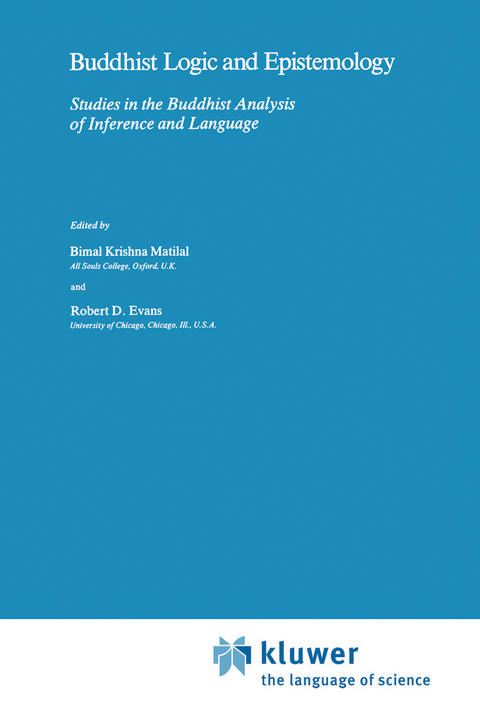
Buddhist Logic and Epistemology
Springer (Verlag)
978-94-010-8563-2 (ISBN)
Buddhist Logic and Epistemology.- An Interpretation of Any?poha in Di?naga’s General Theory of Inference.- Three Systems of Buddhist Logic.- Dharmak?rti and His Theory of Inference.- Some Thoughts on Antarvy?pti, Bahirvy?pti, and Trair?pya.- Di?n?ga and Post-Russell Logic.- Metalogical Remarks on the Procrustean Translation of the Buddhist Par?rth?num?na into the Anglo-European Predicate Calculus.- Dharmak?rti’S Definition of “Points of Defeat” (Nigrahasth?na).- Apoha and ?im?ap?v?k?a.- Jñ?na?r?mitra on Apoha.- Apoha Theory and Pre-Di?n?ga Views on Sentence-meaning.- Was ??ntarak?ita a “Positivist”?.- Identity and Referential Opacity in Tibetan Buddhist Apoha Theory.- Does the M?dhyamika Have a Thesis and Philosophical Position?.- Bhavya’s Critique of Yog?c?ra in the Madhyamakaratnaprad?pa, Chapter IV.- The Concept of Reason in Jñ?nagarbha’s Sv?tantrika Madhyamaka.- Ratnak?rti on Apoha.
| Reihe/Serie | Studies of Classical India ; 7 |
|---|---|
| Zusatzinfo | X, 305 p. |
| Verlagsort | Dordrecht |
| Sprache | englisch |
| Maße | 155 x 235 mm |
| Themenwelt | Geisteswissenschaften ► Philosophie ► Allgemeines / Lexika |
| Geisteswissenschaften ► Philosophie ► Erkenntnistheorie / Wissenschaftstheorie | |
| Geisteswissenschaften ► Philosophie ► Geschichte der Philosophie | |
| Geisteswissenschaften ► Philosophie ► Logik | |
| Geisteswissenschaften ► Philosophie ► Östliche Philosophie | |
| Geisteswissenschaften ► Philosophie ► Philosophie der Neuzeit | |
| ISBN-10 | 94-010-8563-3 / 9401085633 |
| ISBN-13 | 978-94-010-8563-2 / 9789401085632 |
| Zustand | Neuware |
| Haben Sie eine Frage zum Produkt? |
aus dem Bereich


